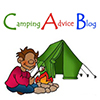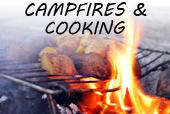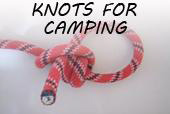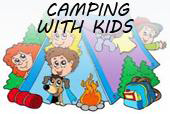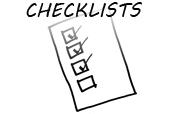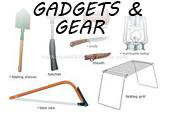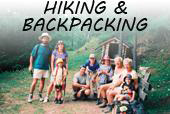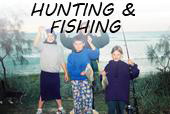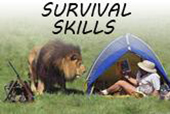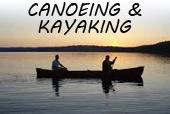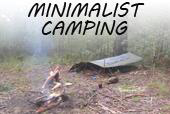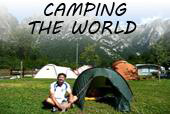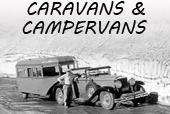No list of tent camping tips would be complete without a good discussion on fire building. Ever since Prometheus brought fire to man, its properties have been cherished throughout our history. Its importance during a camping trip almost takes on a spiritual healing significance as it can boost morale and provide strength even on a rainy or cold day.
With that said, the task of building a fire can be done many different ways. However, here are a few camping tips to keep in mind.
1. Location: Find an open location of at least a 6 yard radius of open space. (Almost all camping sites should be able to accommodate this size). It is also a good idea to avoid areas where there are a lot of dead, over-hanging branches. If it has recently been raining or there is snow on the trees, put a tarp above the fire. This is to protect the fire from being put out by any falling snow or rain when the wind blows.
2. Size: Clear out the underbrush surrounding the fire for a good 3 yard radius. This is done to prevent a brush fire from occurring. If the campsite has been undergoing a drought or has been particularly dry, extend this radius out to 5 yards.
3. Containment: Fires are usually contained by making a pit lined with rocks or using a backlog. A back log is a large log that the fire is placed against. These containments are used to keep the fire enclosed. For most camping sites, either containment can be used. However, a pit lined with rocks is a better option in the mountains where a strong wind can blow out the fire.
4. Firewood: Before starting the fire, it is wise to have your firewood ready to go. This keeps you from having to go hunting for firewood while getting the fire initially going. There are three types of firewood that you want ready.
a. Shavings or tender: These are the strips cut off of dead wood by your knife. Also, dried grass and cotton can be used as tender.
b. Kindling: This includes twigs and pine needles. These can be pulled off of dead trees and burn a little longer than shavings.
c. Various sizes of dead wood: These should be put on the fire in increasing size until you find the appropriate size fire you are looking for.
5. Starting Fire: I recommend creating a small teepee with the shavings and light the shavings. As the fire starts going, you should add the kindling and then add the various sizes of dead wood.
a. One caveat: if the dead wood is wet, split the wood with an axe. The inside wood tends to be drier and will allow it to burn more easily.
6. Choice of Woods: This is usually dictated by your camping site; however, it is a good idea to know your woods.
a. Softwoods, such as pine, firs, and cedar, are good for shavings and burn quickly. However, they tend not to give off much heat or last very long. Also, cedar and pine can get very smoky and should be avoided when cooking.
b. Medium Hardwoods, such as maple, aspen, and cottonwood, are better at burning a little longer and are good kindling.
c. Hardwoods, such as oak, burn the longest and provide the most heat. This makes them the best for cooking.
7. Firewood Supply: You can never have enough firewood. Once you get the fire going, make periodic trips to get more wood. Always make a point to get more than you think you will need.
8. Dry Wood: For morning fires, it is a good idea to bring firewood into the tent during the previous night. This will help prevent morning dew or rain during the night to delay the starting of the morning fire.
9. Other Fire Building Tent Camping Tips:
a. Live wood can be used to setup your cooking area. Live wood is less likely to burn and thus can be used to make pot hooks to hold pots, stakes to hold frying pans over the fire, and can even be used to make an overhang for the fire by chopping out two Y pieces that have another straight crosspiece placed across the notches of the two Y pieces.
b. Morning coals: If the weather conditions are appropriate, it is a good idea to have a big evening fire with hardwoods. Often times, you will still have coals in the morning that can be used to start the fire.
